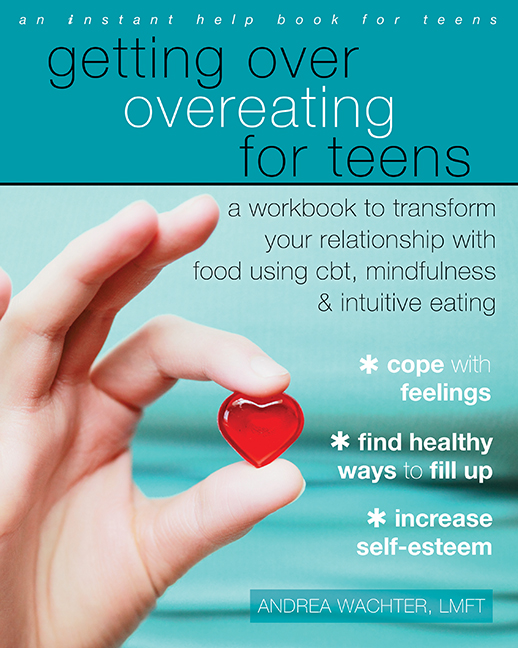If your child has a problem with overeating or binge eating, you have likely experienced a lot of frustration and concern. Here are some tips and tools to help you navigate these sensitive topics and work together on them as a family. They work for parents as well!
Dealing with Feeling. Overeating (especially sweets and comfort foods) is an attempt to soothe difficult feelings, so it’s essential to teach kids how to cope with their emotions. Humans are made to experience a full range of emotions. Teach your child how to identify their emotions and healthy ways to cope with them.
See also: How to Reveal and Heal What You Feel
Expression is the opposite of depression, so kids who learn to regularly release their pain will not only have less need to overeat, but will also be more balanced and healthy, overall.
Quitting the Fat Chat. Fat chat is when we talk about food, fat, or people’s bodies in negative ways. Even positive comments about weight and food can be harmful because it leads people to think they need to look a certain way.
Here are a few ways to avoid fat chat:
- Don’t talk or joke about what or how much your child eats.
- Avoid comments about “good” or “bad” foods. This often leads to restriction and/or rebellion.
- Don’t make judgments about your weight, their weight, or other people’s weight.
- On a non-verbal note, don’t blatantly stare or glare at your child while they’re eating.
Quieting the Unkind Mind. Many kids overeat as an attempt to quiet, distract, or confirm their unkind thoughts. Teach your child the difference between thoughts and facts. See if they can literally show you one single thought in their minds and then ask them to show you some facts around them they can see, hear, or touch. Encourage them to speak to themselves like they would their best friend or their beloved pet. Mindfulness can also be a great way to steer away from negative thoughts, or at least recognize thoughts as just thoughts. Consider listening to a podcast on mindfulness with your kid.
See also: The BASICS of Mindful Eating and Beyond
Befriending Our Bodies. Here’s a hunger and fullness scale you and your family can use to help identify physical cues. It’s similar to a battery that we don’t want to drain or overcharge. The goal is to eat at about a 3 (hungry but not starving) and stop at about a 7 (comfortably satisfied or moderately full). Practice using this as a family so no one person feels singled out.
0…………………5…………..……..10
Hungry Neutral Stuffed
As a family, try these three diet-busting questions when hungry:
- What does the restrictor in me think I SHOULD eat?
- What does the overeater in me WANT to eat?
- What does my body wisdom say?
Teach and practice intuitive movement. This means tuning into our innate wisdom that comes from questions such as: “How do I enjoy moving? How does my body want to play and rest?”
Filling Up Without Feeling Down. Create a list of Spirit Fillers. These are healthy things kids can turn to instead of extra food. Some like to play a game or an instrument; others like to be in nature. Depending on the age, some kids want to be hugged or held. Sure, they won’t get the same kick from crafting as they would a box of cookies, but they also won’t have the same painful consequences.

Food for Thought. Do your best to model all of the above. And give yourself lots of credit for being the caring parent you are for reading this article!
 Andrea Wachter is a licensed marriage and family therapist and author of Getting Over Overeating for Teens. She is also co-author of The Don’t Diet, Live-It Workbook and Mirror, Mirror on the Wall: Breaking the “I Feel Fat” Spell.
Andrea Wachter is a licensed marriage and family therapist and author of Getting Over Overeating for Teens. She is also co-author of The Don’t Diet, Live-It Workbook and Mirror, Mirror on the Wall: Breaking the “I Feel Fat” Spell.



 Why Journaling Is Especially Helpful to Adult Children of Emotionally Immature Parents
Why Journaling Is Especially Helpful to Adult Children of Emotionally Immature Parents